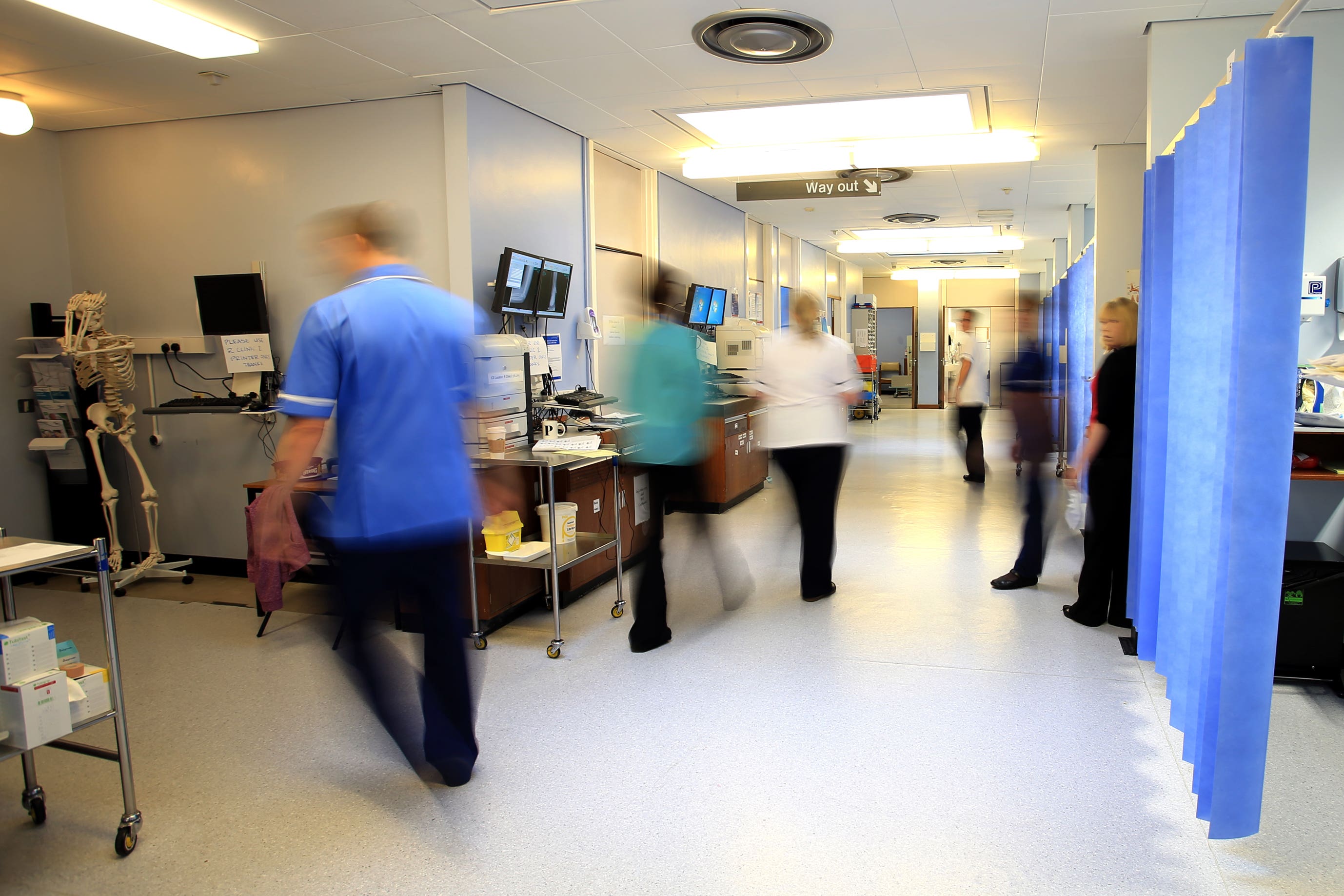Crisis in A&E medicine cannot be blamed on pandemic, warns senior medic
Royal College of Emergency Medicine president Adrian Boyle was among health leaders who attended the Prime Minister’s winter crisis talks.

Your support helps us to tell the story
From reproductive rights to climate change to Big Tech, The Independent is on the ground when the story is developing. Whether it's investigating the financials of Elon Musk's pro-Trump PAC or producing our latest documentary, 'The A Word', which shines a light on the American women fighting for reproductive rights, we know how important it is to parse out the facts from the messaging.
At such a critical moment in US history, we need reporters on the ground. Your donation allows us to keep sending journalists to speak to both sides of the story.
The Independent is trusted by Americans across the entire political spectrum. And unlike many other quality news outlets, we choose not to lock Americans out of our reporting and analysis with paywalls. We believe quality journalism should be available to everyone, paid for by those who can afford it.
Your support makes all the difference.The current crisis in accident and emergency is much worse than before, the president of the Royal College of Emergency Medicine has said.
Adrian Boyle, who describes a deteriorating situation spanning back nearly a decade which now sees ambulances waiting outside hospitals and a lack of beds, said it is wrong to blame the current situation on the pandemic.
Dr Boyle, who attended Prime Minister Rishi Sunak’s emergency talks with health leaders on Saturday in an attempt to alleviate the winter crisis in the NHS, said: “We are really pleased it is being acknowledged at the highest level and pleased it is being recognised as a crisis, because there is a crisis in emergency medicine.
“This crisis is much worse.”
He also told the Sophy Ridge On Sunday programme on Sky News: “Every winter we seem to go through this thing where there is another A&E crisis.
“It’s important to recognise that what is going on at the moment is much worse.
“The visible markers are ambulances waiting outside hospitals, but that is only a visible marker of the whole system being under stress.
“What we are seeing is that if you go into emergency departments you will see people being looked after in inappropriate areas and long waits to be admitted.
“If you go into the wards, they are full. Fundamentally, the big problem we have got is that we don’t have enough beds. Our hospitals are too full for us to do the jobs we need them to do.”
Senior doctors say the NHS is on a knife-edge, with many A&Es struggling to keep up with demand and trusts and ambulance services declaring critical incidents.
A wave of strikes and high levels of flu and coronavirus are adding to huge pressures in the health service.
Discharge rates fell to a new low in England last week, with only a third of patients ready to be released from hospital actually leaving.
Dr Boyle said emergency care performance has been deteriorating due wider staffing issues within the NHS, lack of beds and capacity, and lack of social care – all problems he said are due to under-resourcing.
He also suggested that changes can be made once there is the political will for improvements.
Dr Boyle said the problems behind the crisis go back “way longer” than the pandemic, which has additionally loaded “a lot of disruption on to hospitals”.
He told the programme: “If you go back before 2015, we did not have problems with ambulance handover delays. We did not have very often people spending more than 12 hours in emergency departments.
“Fundamentally, the big problem is that our hospitals are just too full.”
He said a variety of issues need to be addressed and hospital beds need to be used “as efficiently and properly as possible”.
On whether using more capacity from the private sector could help, Dr Boyle said: “I think we are in a state of crisis at the moment and anything we can do to reduce occupancy within hospitals is the right thing to do.
“It feels like an expensive way to try and get ourselves out of a pickle. I think that long term we have got to look at how we actually stop this happening again.
“That means actually getting to probably a more cost-effective way to try and do this by reforming the way we do social care in this country.”
Mr Sunak hosted experts including England’s chief medical officer Professor Sir Chris Whitty and NHS England chief executive Amanda Pritchard in Downing Street on Saturday.
He was warned that the rare weekend meeting was unlikely to ease the pressure on frontline services, blamed on “years of inaction”.
A Downing Street spokeswoman said “easing the immediate pressures whilst also focusing on the long-term improvement of the NHS” are among Mr Sunak’s key commitments.
She said: “We want to correct the unwarranted variation in NHS performance between local areas, because no matter where you live you should be able to access quality healthcare.”